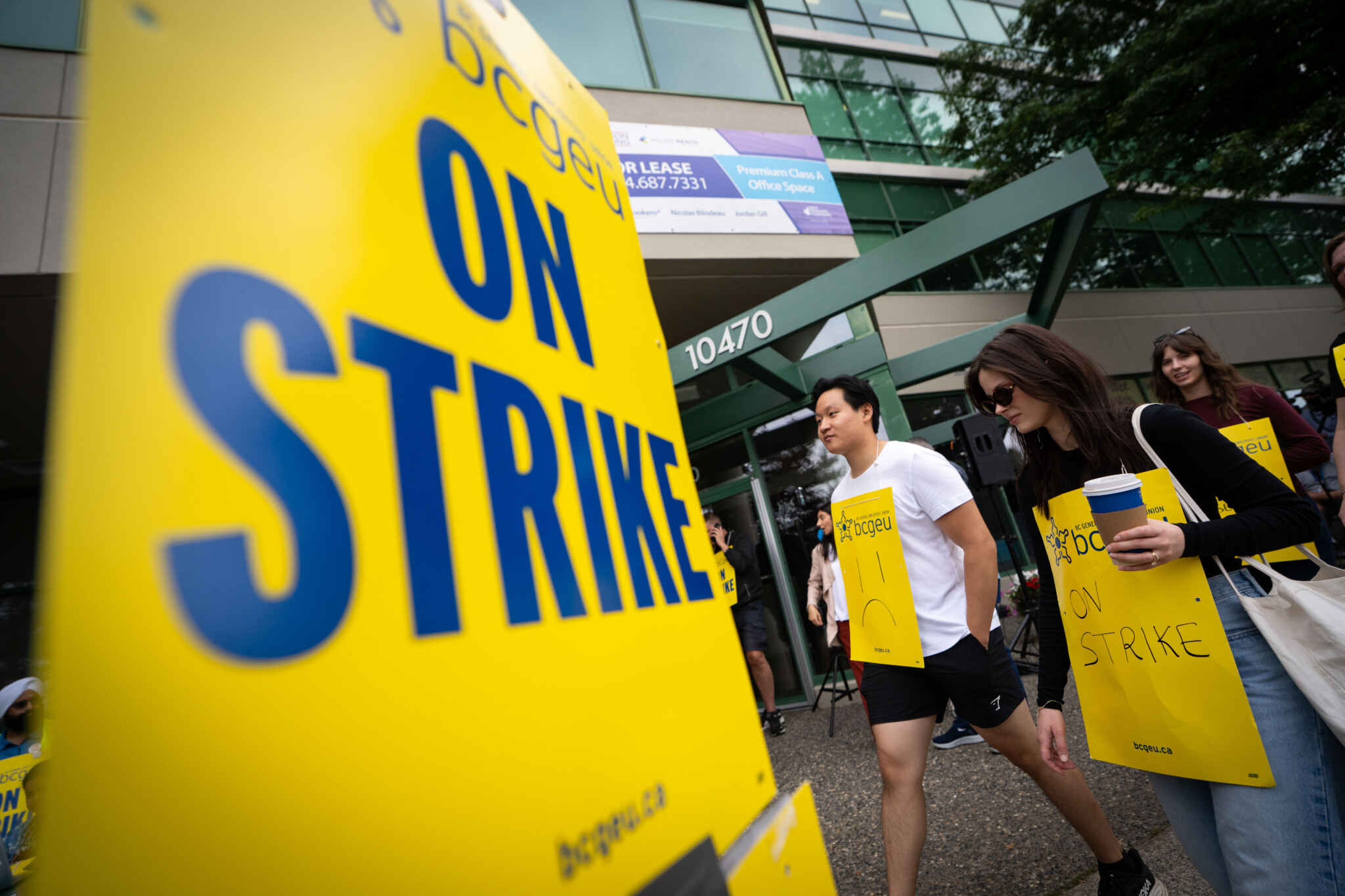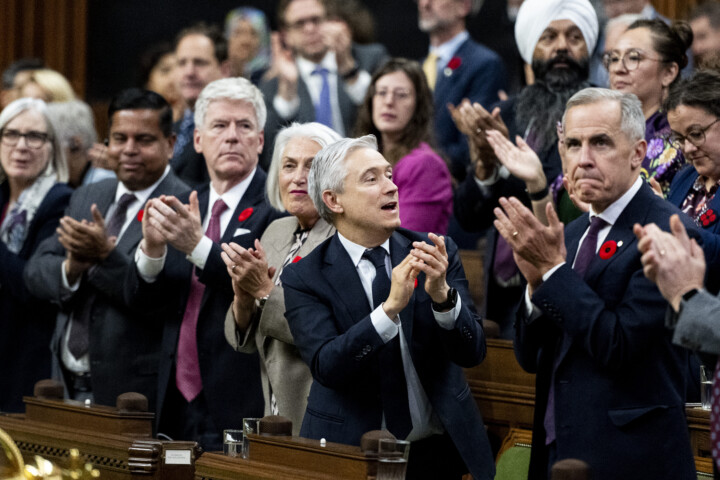The Hub recently initiated a very interesting conversation on whether conservatives should support unions (or not). As a former president of the Quebec Employers Council, the lobby for large employers in Quebec, I have a perspective on the matter which, hopefully, will prove useful.
On a purely philosophical level, no decent person can be against unions per se, in the sense that they are (or should be, conceptually speaking) a practical incarnation of the right of free association. One problem, though, is that this right of free association often becomes, in practice, an obligation to associate, which is often implemented through a host of coercive measures. More on that later.
First of all, one must distinguish between private sector unions and unions that represent employees who work for various levels of government. Aside from the fact that the union leaders of the latter type tend to be more ideologically oriented (in favour of more government intervention in society and more government spending), there is also a tangible and more important difference between the two that has to do with economics and competition.
The employees who work for private firms are subject to the competition generated by rival firms, and therefore see their economic interests as intimately tied to those of their employers. This alignment creates a different, and in my opinion, healthier dynamic. Said differently, if any given private sector union pushes for excessively lavish working conditions for its members (excessiveness not in absolute terms, but rather in relative terms—i.e., what can the private company in question actually afford while remaining competitive), the employer can go bankrupt or move its activities somewhere else.
In contrast, public sector unions and the employees they represent are typically not aligned in this way, in the sense that the municipal, provincial, or federal government they work for will rarely actually go bankrupt, and will most certainly not “move its production elsewhere.” Governments in Canada benefit, for better or for worse, from a borrowing power that allows them to “kick the can down the road” in terms of fiscal accountability.
Another key distinguishing characteristic is that governments, unlike private companies, do not have shareholders or owners with a direct financial stake in the outcome of the negotiation of labour conditions. Sure, there are elected officials and bureaucrats who will often represent the government at the negotiating table as best they can, but again, this is simply different (and fundamentally so) from when someone has a direct financial stake in the matter.
Third, public sector unions and the employees they represent can, in a very real way, “influence the selection” of the employer they will end up negotiating with. This is a crucial fact almost no one talks about. Indeed, it is no coincidence that they will typically support left-of-centre political parties during elections as opposed to right-of-centre ones. While there might be ideological considerations behind those preferences, it also constitutes a very practical move on their part: i.e., supporting a future governing party more likely to yield to their demands during future labour negotiations. Conversely, a private sector union cannot influence the selection of the owner(s) they have to negotiate with.

Members of the British Columbia General Employees’ Union picket outside an ICBC driver licensing office, in Surrey, B.C., Monday, Sept. 8, 2025. The Canadian Press.
For all these reasons, putting public sector unions in the same bucket as private sector unions is both a conceptual and a practical mistake. This is not to say, of course, that “conservatives” or “conservative political leaders” should not aim to have cordial relationships and open channels of communication with public sector union leaders as well. It simply means that these two different types of unions are simply not the same kind of creatures, at the most fundamental level.
Over the years, several media organizations have accused me of being “anti-union.” I honestly do not think that I am. However, I have indeed been very critical, for a long time, of certain features of Canadian labour laws that create distortions, and usually plain advantages, in favour of unions—and against some employees as well as virtually all employers. Labour laws, as well as laws in general, for that matter, should be impersonal and seek neutrality towards the various parties involved.
Allow me to illustrate this point. Several labour codes, be it provincial ones or the federal ones, ban replacement workers, which are often referred to pejoratively as “scabs.” This legislative diktat creates an imbalance between employers and their unionized workers, since those workers can basically hijack their employers, who are left with no alternatives. Recent examples have illustrated this. Furthermore, employees are free to do other work while on strike and also receive a stipend from their union’s strike fund. Finally, potential replacement workers are blatantly discriminated against and deprived of the possibility of showing their worth.
Labour laws in Canada also enable several individual rights violations against Canadian workers, as well as a denial of universally recognized democratic rights and practices. For example, in Quebec, votes on union certification and, where applicable, disaffiliation, are not held by secret ballot, but rather by signing cards in person, or in certain cases, by a show of hands. It is an enormous scandal that secret ballots are not used (except for rare, rather technical exceptions). Requiring them is universally recognized as a fundamental democratic principle.
Another of my long-standing positions in these matters is equally pro-workers’ rights, even though it has been described by some as “union bashing.” As everyone knows, workers in a unionized workplace are obligated to pay union dues whether they want to or not. The justification for this measure, known as the Rand Formula, is that workers in such a workplace will enjoy the benefits negotiated by the union, whether they choose to pay the union dues or not.
Whether you agree or disagree with this line of reasoning, it does rest upon (at least at first glance) a certain economic logic known as the “free-rider” problem. But the thing is that unions then go and spend their members’ dues on all sorts of things that have nothing to do with the working conditions of the employees concerned. Such as, for example, in support of a “free” Palestine, and who knows what else. Unionized employees should obviously have the right to contribute voluntarily, and on an extra basis, to this type of expenditure not directly related to the negotiation or defense of their rights in the workplace. But they should not be forced to, as is currently the case.
These legislative measures, and several others, have effectively transformed the perfectly legitimate “right of association” into a de facto “obligation of association” that creates economic distortions and, more importantly, that violates the individual rights and freedoms of too many workers. Conservatives, understood here as classical liberals, should have the intellectual rigour to distinguish the former from the latter. And then act accordingly when the time comes to decide whether they wish to “support” unions, or not.









